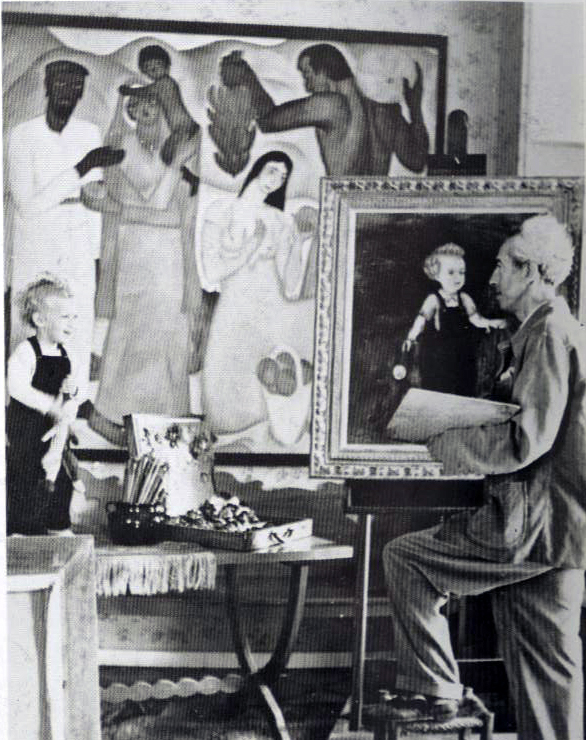Artist Reuven Rubin Is Born

November 13, 1893
Reuven Rubin, one of Israel’s most acclaimed painters, is born in Galatz, Romania. Rubin (born Rubin Zelicovici), whose family was both very poor and very religious (his father was the leader of the local congregation), was enchanted by the stories of the Land of Israel he would hear from visiting emissaries who were traveling through Romania to raise funds for the Jewish community there. His drawings from his teenage years began appearing regularly in local journals in Romania. At the same time, he began reading about the burgeoning Zionist movement and Theodor Herzl and it moved him to one day live in the Land of Israel.
In 1910, he received a note from a potential buyer of his drawings. Included with the note were two gold coins and the suggestion that Rubin go to Jerusalem to study at the Bezalel School of Art, which had opened in Jerusalem in 1906. Rubin sold his bicycle to pay for his trip to Jerusalem and enrolled at Bezalel in 1912. It was at this time that he began to explore the city of Jerusalem and to sign his works with the name Reuven Rubin.
Initially disappointed by the quality of instruction at the new academy, Rubin left to study in Paris to gain more formal training before being forced to return to Romania upon the outbreak of World War I in 1914. Rubin would soon spend time in Venice, Rome and New York before returning to the Land of Israel in the fall of 1922 and settling in Tel Aviv.
In 1927, Chaim Nachman Bialik wrote about him, “Whoever wishes to see the Land of Israel and all that is connected with it in its transcendent purity should turn to the paintings of Reuven Rubin. (Wilkinson, Sarah, Reuven Rubin, New York: Harry N. Abrams, Inc., 1974, p. 52.)
In 1948, Prime Minister David Ben-Gurion and Foreign Minister Moshe Sharett persuaded him to serve as Minister Plenipotentiary to Romania, becoming Israel’s first ambassador to Romania. During his eighteen months in the post, Rubin, he focused on helping to persuade the Romanian government to lift restrictions which prevented Romanian Jews from leaving the country to immigrate to Israel. When Rubin returned to Israel in December 1949 after stepping down from his post, he traveled on a ship with 800 Romanian Jews whom he had helped to make aliyah.
In 1968, the Jewish National Fund dedicated a forest in his name in the hills outside of Jerusalem. Rubin was awarded numerous awards over his career, including the 1973 Israel Prize. He passed away in October 1974. Upon his death, his Tel Aviv home became the Rubin Museum.
For more on Reuven Rubin: The Rubin Museum.